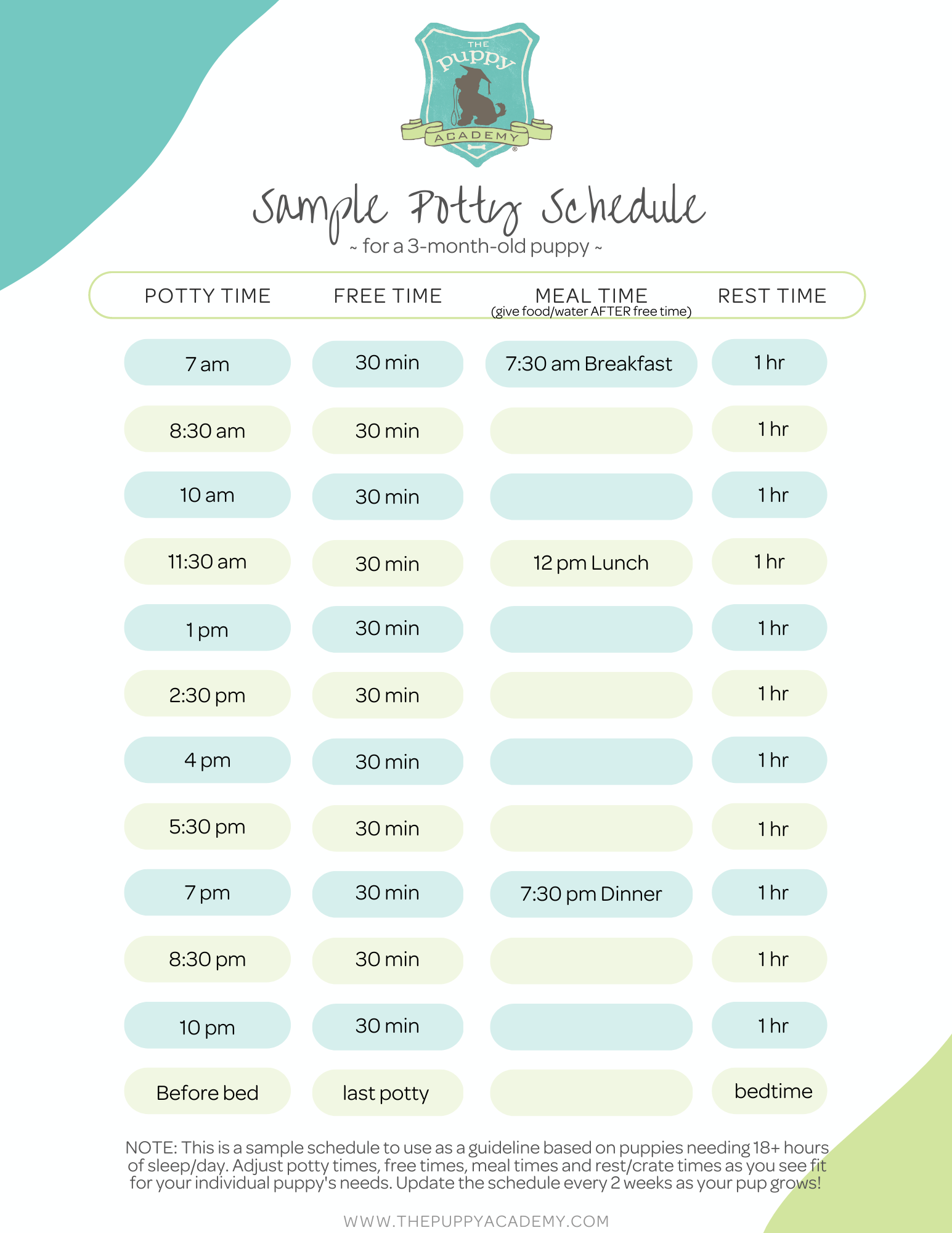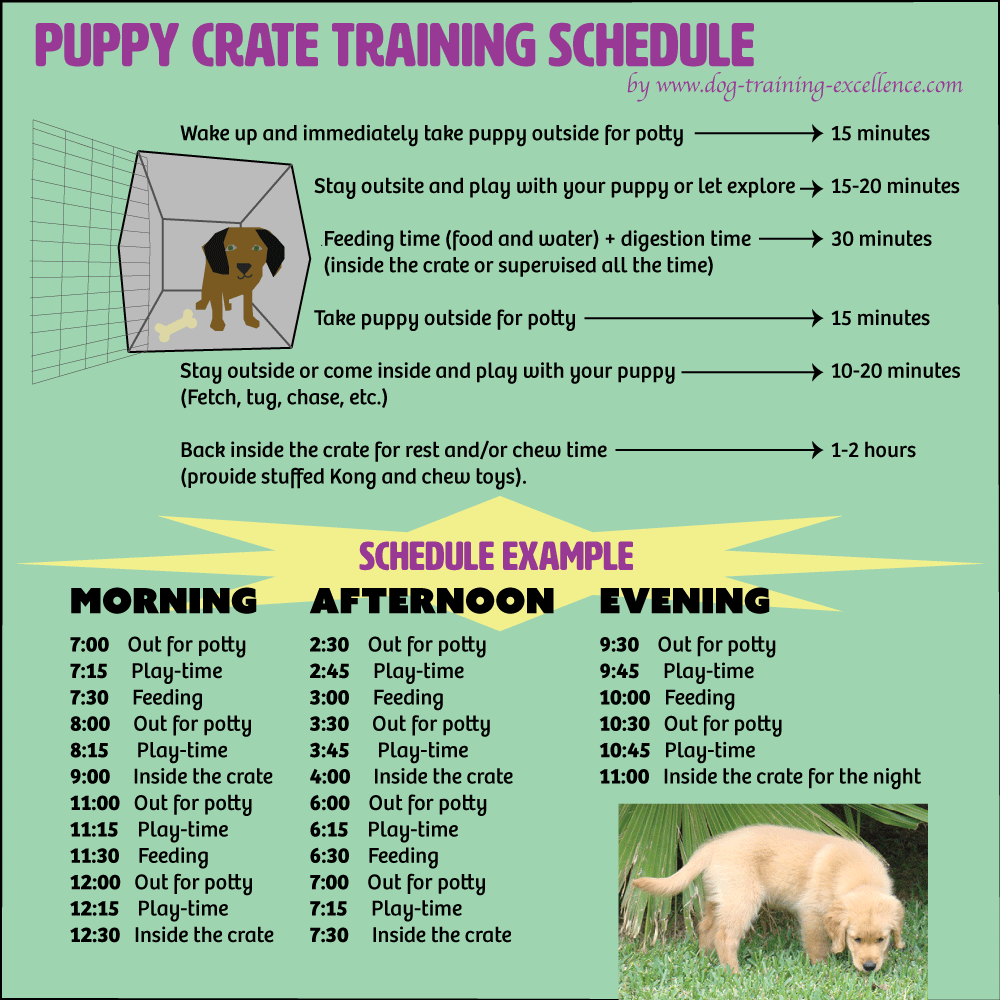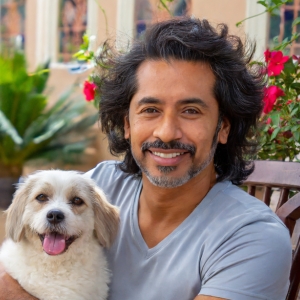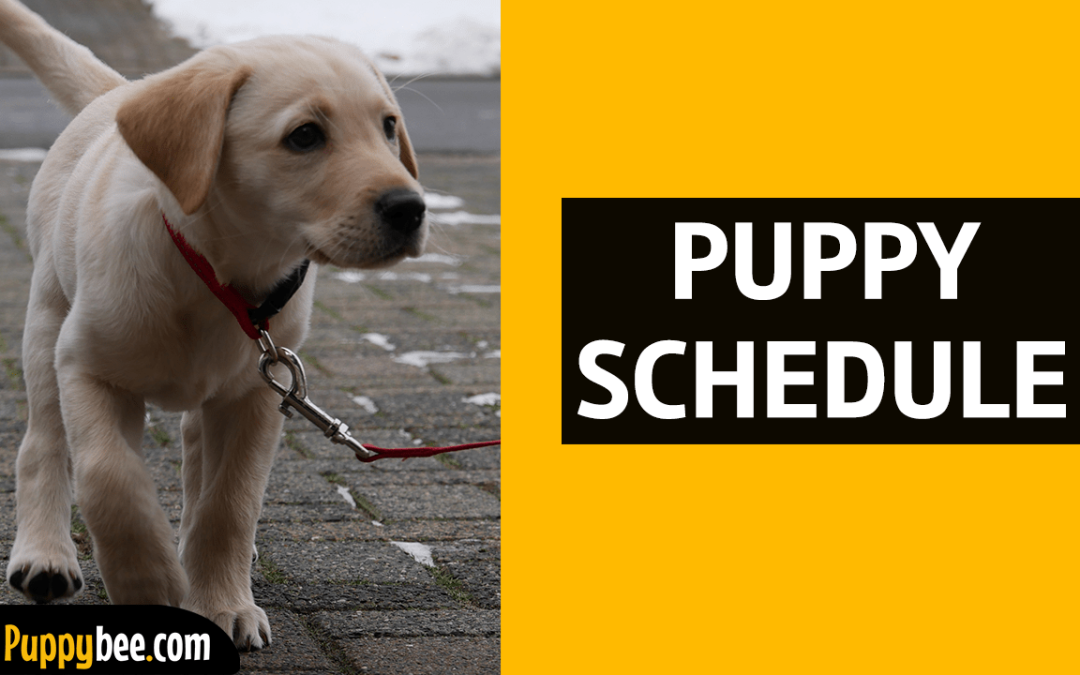A puppy’s schedule should include potty breaks, sleep, feeding, and crate training at consistent intervals. Creating a structured routine helps to train the puppy and establish good behavior.
Introducing a new puppy into your home is an exciting yet challenging time. Establishing a schedule for your new furry friend plays a crucial role in their development and overall happiness. A proactive approach to managing their potty, sleep, feeding, and crate training needs will help both you and the puppy adjust to each other’s routines.
By creating a structured and consistent schedule, you’ll promote discipline, reduce accidents, and establish a strong bond with your puppy. This guide will outline the essential elements of a well-balanced puppy schedule and offer tips for implementing it effectively into your daily routine.
Importance Of A Puppy Schedule
Establishing a routine and promoting consistency are vital for a puppy’s well-being. A structured schedule helps in regulating their biological functions and behaviors. It’s important to prioritize potty, sleep, feeding, and crate training within the schedule to ensure their physical and emotional development. By adhering to a consistent routine, puppies can learn expected behaviors and adapt to their environment more effectively.
Creating a schedule that includes designated times for meals, naps, play, and bathroom breaks can make the training process smoother for both the puppy and the owner. It’s essential to be patient and understanding as the puppy adjusts to the schedule, providing positive reinforcement and a safe, comfortable space for them to thrive.

Credit: www.thepuppyacademy.com
Potty Training
When potty training your puppy, it’s essential to introduce the concept of where they should do their business. Start by designating a specific spot in your yard where you want them to go. Always accompany them to this spot and use a consistent command, such as “Go potty.” This will help them associate the command with the action. Be patient and give them time to explore and understand what is expected of them.
Establishing a regular potty schedule is crucial for successful potty training. Take your puppy outside to their designated potty spot every 1-2 hours, especially after meals, naps, and play sessions. Consistency is key, so stick to the schedule even on weekends. Remember to praise and reward your puppy immediately after they go potty in the designated spot. This positive reinforcement will help reinforce the desired behavior.
Sleep Training
Creating a bedtime routine for your puppy is essential for promoting restful sleep. Start by establishing a consistent evening schedule, including mealtime, playtime, and potty breaks. Gradually wind down the activities as bedtime approaches to signal to your puppy that it’s time to sleep.
Avoid stimulating activities and provide a comfortable, cozy sleep environment. Incorporate calming rituals such as gentle petting or soothing music to help your puppy relax. With patience and persistence, your puppy will learn to associate these routines with sleep, leading to more peaceful nights for both of you.

Credit: www.pinterest.com
Feeding Schedule
|
Crate Training
When selecting a crate for your puppy, consider size and comfort. The crate should be spacious enough for your puppy to stand up and turn around in, yet cozy for naptime. Introduce the crate as a safe haven where your puppy can relax and feel secure. Place a comfy bed or blanket inside and leave the door open initially. Let your puppy explore the crate at their own pace, encouraging positive associations with treats and praise. Gradually increase crate time while your puppy feels comfortable. |

Credit: www.oaklandanimalservices.org
Frequently Asked Questions
What Is A Good Potty Schedule For A Puppy?
A good potty schedule for a puppy typically involves taking them outside first thing in the morning, after meals, after naps, and before bed. Consistency is vital for successful training.
What Is The 10 Minute Rule For Puppies?
The 10-minute rule for puppies is an exercise guideline where you engage in physical activity with your pup, such as walking or playing, for about 10 minutes per month of their age. This helps prevent fatigue, keeps them active, and aids in their overall physical development.
What Is A Good Crate Training Schedule For Puppies?
A good crate training schedule for puppies involves regular feeding and potty breaks. Gradually increase crate time and offer treats. Avoid forcing the puppy into the crate. It’s essential to establish a positive association with the crate. Supervise your puppy and provide toys for mental stimulation.
Should I Crate My Puppy Until He Is Potty Trained?
Yes, creating your puppy can aid potty training by limiting accidents and teaching bladder control.
Conclusion
Establishing a puppy schedule is crucial for their growth and development. Following a routine for potty breaks, sleep, feeding, and crate training sets the foundation for a well-behaved and healthy dog. By providing structure, consistency, and positive reinforcement, you can ensure your puppy thrives in their new home.

Hello, I’m Ethan Mitchell. My passion is dog training and behavior enthusiasts. With years of experience working with various breeds, my goal at Dog Advisor Pro is to help dog owners build strong, loving relationships with their furry friends through effective training techniques. Understanding a dog’s behavior is the key to harmonious companionship. I am dedicated to sharing practical training tips that improve the lives of dogs and their owners.


